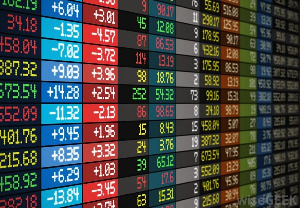AUDIO: Bernard Avle breaks down causes of cedi depreciation

Speaking on Eyewitness News, he noted that some foreigners are redirecting their investments from Ghana, a situation that moves dollars out of the country.
The Bank of Ghana has equally mentioned that the Cedi came under pressure as offshore investors exited positions in domestic securities.
“The Increase in interests rates in world markets has made portfolio investors disinvest their investments here,” Mr. Avle noted.
According to him, there is also pressure on the Cedi because when the fiscal year ends, which is between February and March, a lot of companies pay dividends to shareholders in dollars.
“You make GHS 10 million, convert it into dollars to send to shareholders, so they [the companies] are looking for more dollars.”
Furthermore, because importers were buying goods on credit towards the end of the year, attempts to pay back, which is in the dollar currency, have contributed to the struggles of the Cedi.
“You also don’t produce enough things here and your importers are looking for dollars to pay for things they bought in January, and all of this coincides between February and March,” Mr. Avle said.
With the government set to announce some measures to counter the economic downturn, Mr. Avle expects reliefs will come from the energy sector following months of inflation that led to an increase of the policy rate by 250 basis points to 17 percent.
“The inflation has been largely driven by the increase in fuel and increase in transportation fares, which has affected food inflation as well.”





